RADAR centre: Uncertain future for Belfast's new safety education facility
- Published
The RADAR centre includes a life-size model street, with bus and train stops, a police station, custody cell and a courthouse
Belfast's new £1m safety centre is set to open fully at the start of 2016, but its long-term future is not yet secure.
The Risk Awareness and Danger Avoidance Responsibility Centre (RADAR) has a life-size model street, bus and train stops, police station and a courthouse.
It aims to teach children and young people about road, fire and transport safety as well as criminal justice.
Although the PSNI is one of the main funders of the RADAR project, it cannot afford all of its yearly running costs,
The educational facility in Belfast's harbour estate is one of the most advanced of its kind in the UK.
The annual bill to operate the centre is just under £500,000.
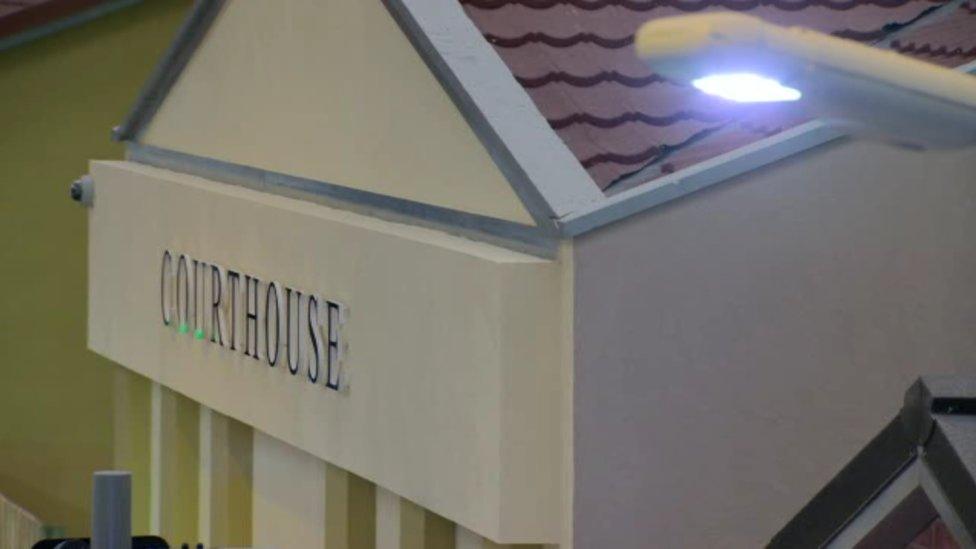
The aim of the facility is to teach children and young people about road, fire and transport safety as well as criminal justice issues
Funding from about 50 public, private and community organisations will enable RADAR to open in January, and it has already been fully booked by schools and youth organisations until March 2016.
However, RADAR's manager Sandra Leo admits that its long-term future is still uncertain.
"Unfortunately, we've all seen huge cuts across the public sector this year and last year," she said.
"They had a significant effect on RADAR, but fortunately on the back of some of the sponsors coming through from the private sector, we've been able to guarantee the opening in January, and then certainly the future moving into 2016/17."
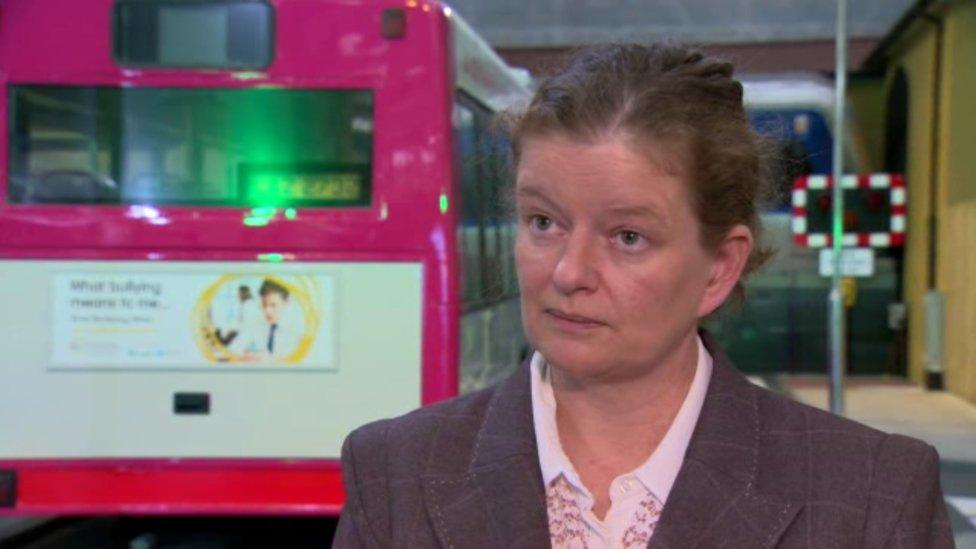
RADAR manager Sandra Leo, said the new centre will open in January and is securely funded for its first 12 months
The PSNI had previously warned that the centre may have to be mothballed if the money could not be found for staffing and running costs, but ACC Alan Todd said they are now much more hopeful.
"We think the future is secure in the short to medium term, but there is still a significant amount of work ahead of us.
"We think as the facility opens and we can demonstrate its utility to a range of partners, that will attract more sponsorship and support."
One of the many striking features of the centre is a car simulator, which allows young people to experience how dangerous drink or drug driving is, or driving while texting.
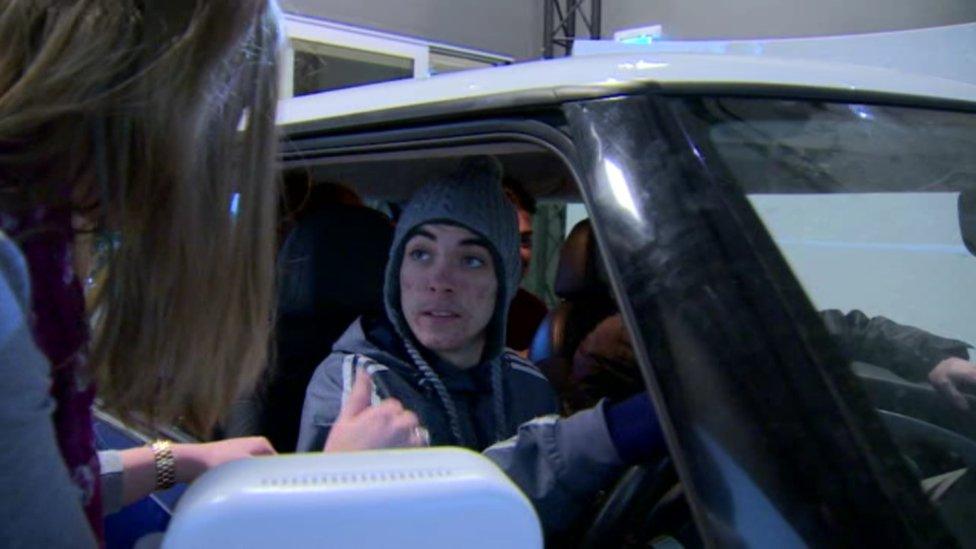
Young people who visited the centre got the chance to try out a driving simulator
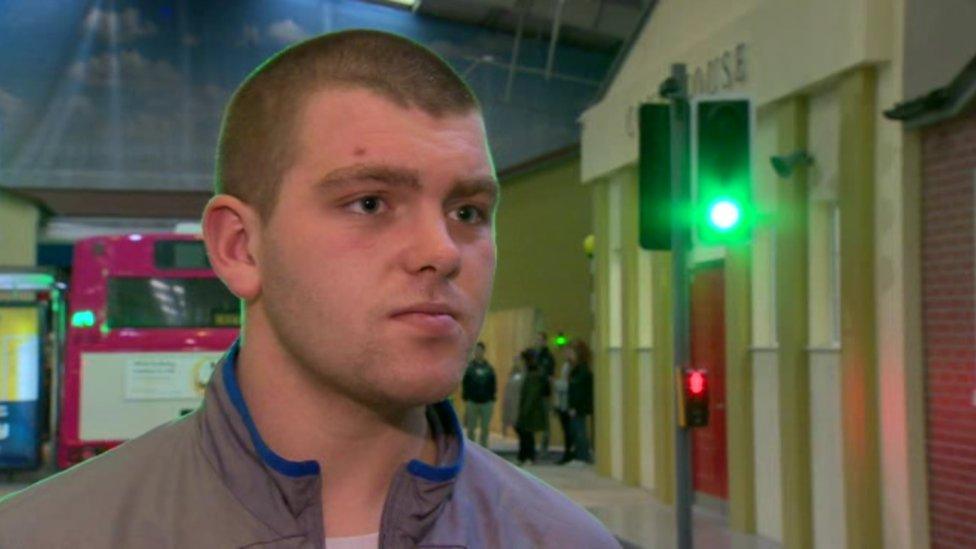
David Chapman, who was convicted of dangerous driving last year, has been talking to young people about the consequences of his actions
David Chapman, a 21-year-old who spent time in prison for driving offences, now speaks to RADAR users voluntarily, warning them not to follow the path he took.
"I think a lot of young people need to see this to get the education point across," he said.
"I don't want to see young people going down the road that I've been down, and maybe here can help them understand the reality of my experience."
The reality David talks about is evident when Barry McGuigan, 33, from Armagh talks to visitors.
Barry has been paraplegic for eight years.
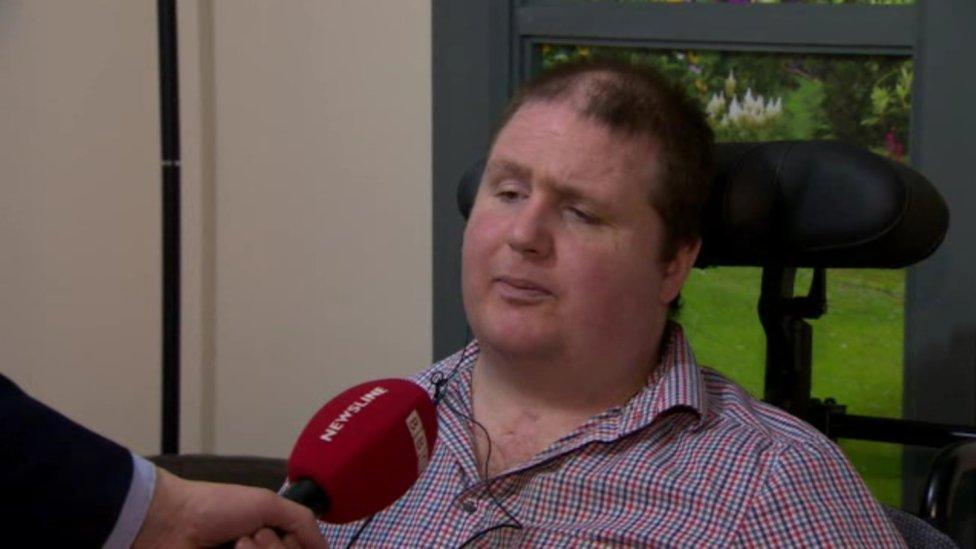
Barry McGuigan told BBC Newsline he wanted young people to learn from his mistakes by talking to them about how drink-driving left him paralysed
He got behind the wheel of his car after drinking eight years ago, and crashed.
"Never, never drink and drive," is the message he says he wants people to take away.
"Look at me now, I used to be like you but it can all change in a heartbeat."
Some school and youth groups are already using the centre, but about 36,000 schoolchildren and young people are expected to visit RADAR next year.